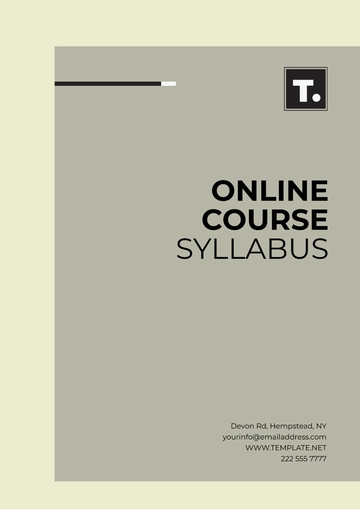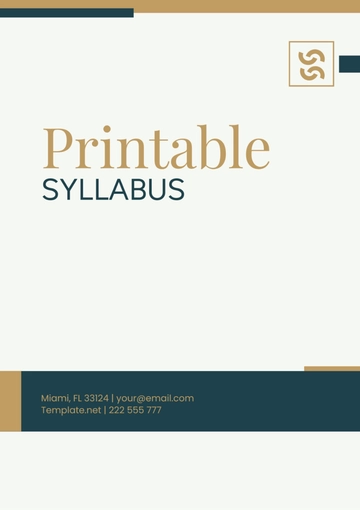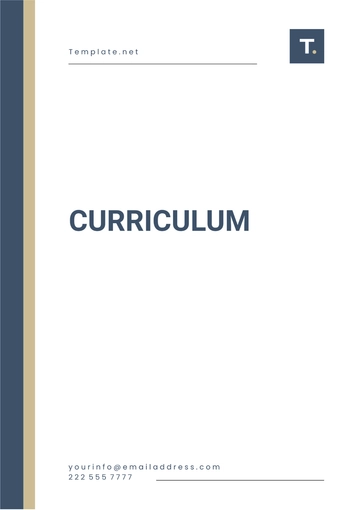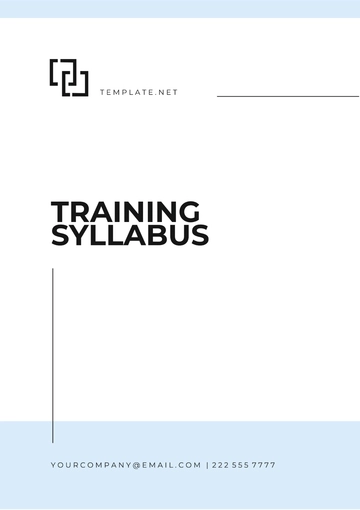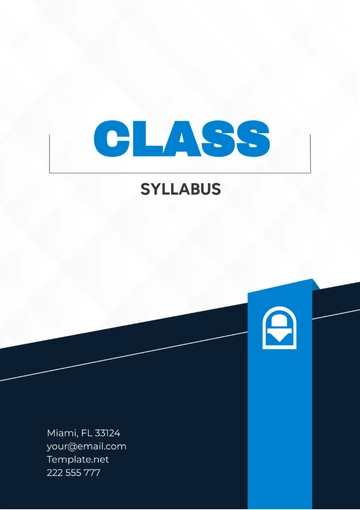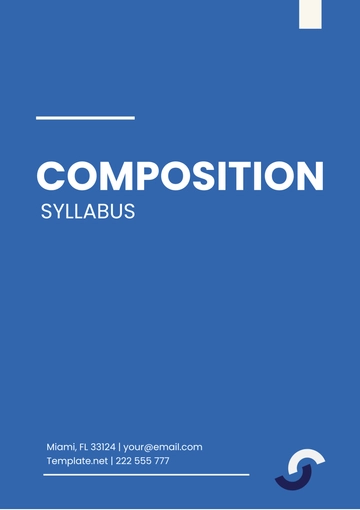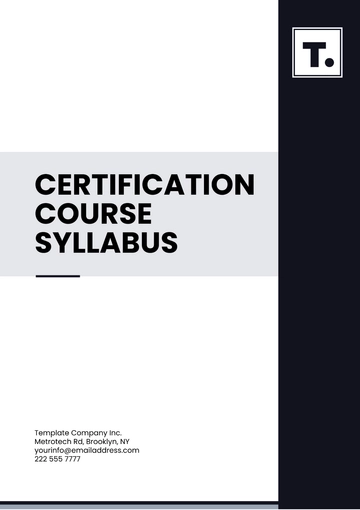Free Pathophysiology Syllabus

Pathophysiology Course
Course Title | [COURSE TITLE] |
Course Code | [COURSE CODE] |
Office Hours | [OFFICE HOURS] |
Class Location | [CLASS LOCATION] |
Class Time | [CLASS TIME] |
Class Duration | [DATE] - [DATE] |
1. Course Description
This course is specifically designed for medical students and healthcare professionals looking to advance their knowledge in the field of pathophysiology with a particular focus on cardiovascular diseases. The course includes theory and practice and presents students with in-depth examinations of various cardiovascular diseases, their causes, progression, and impact on the body system.
2. Instructor Information
Instructor: [YOUR NAME]
Organization: [YOUR COMPANY NAME]
Contact: [YOUR EMAIL]
3. Learning Objectives
To provide an overview of the various cardiovascular diseases.
To understand the different causes and risk factors associated with these diseases.
To dissect the clinical manifestations of selected cardiovascular diseases.
To explore prevention measures and treatment options for these diseases.
To apply this knowledge in practical, real-world scenarios through case studies.
4. Course Schedule
Week | Topic | Activity |
|---|---|---|
1 | Introduction to Cardiovascular Diseases | Lecture and Discussion |
2 | Causes and Risk Factors | Case Study Analysis |
3 | Clinical Manifestations and Diagnosis | Group Work and Presentation |
4 | Prevention Measures and Treatments | Test |
5 | Practical Application and Case Studies | Final Project |
5. Required Reading and Materials
Lilly, L. (2016). Pathophysiology of Heart Disease: A Collaborative Project of Medical Students and Faculty.
Kumar, V., Abbas, A. K., & Aster, J. C. (2017). Robbins Basic Pathology.
Braunwald, E., & Mann, D. L. (2019). Braunwald's Heart Disease: A Textbook of Cardiovascular Medicine.
Case studies: A selection will be provided by the instructor.
Digital resources: Online databases (e.g., UpToDate, PubMed).
6. Assignments and Assessments
Weekly quizzes aiming to reinforce students' learning.
Group presentations to encourage collaborative learning and problem-solving skills.
Case study analyses to apply theory to real-life situations.
A final project to demonstrate comprehensive and in-depth understanding of the course material.
Participation: your active engagement during lectures and in the discussion forums will add to your final score.
7. Course Policy
All assignments and assessments are due on their respective due dates. Late submissions will not receive full credit.
Respectful and professional behavior is expected at all times.
Attendance is mandatory; missing more than two classes will impact your final grade.
Please come to class prepared, having read the assigned material in advance.
Academic honesty and integrity are crucial; plagiarism and cheating will not be tolerated.
8. Grading Policy
Grade Component | Percentage |
|---|---|
Weekly Quizzes | 30% |
Group Presentation | 20% |
Case Study Analysis | 20% |
Final Project | 20% |
Participation | 10% |
Disclaimer
The syllabus that has been supplied to you is not set in stone. There may be instances where certain alterations or modifications could be necessitated for various reasons. It does not necessarily mean that the format or content you are currently viewing is in its final and unchangeable form. Should there be any kind of changes or amendments made to it, be it minor or major, we pledge to make efforts to inform those who are concerned, involved, or affected as early as we can. It is our responsibility to ensure that you are kept up to date with any such alterations to avoid confusion or misunderstandings.
- 100% Customizable, free editor
- Access 1 Million+ Templates, photo’s & graphics
- Download or share as a template
- Click and replace photos, graphics, text, backgrounds
- Resize, crop, AI write & more
- Access advanced editor
Discover expertly crafted Pathophysiology Syllabus Templates on Template.net. Tailor your curriculum with our editable and customizable designs. Utilize our Ai Editor Tool to seamlessly modify content. Access comprehensive templates designed to meet diverse educational needs. Elevate your teaching experience with professionally curated resources, available exclusively on Template.net.



